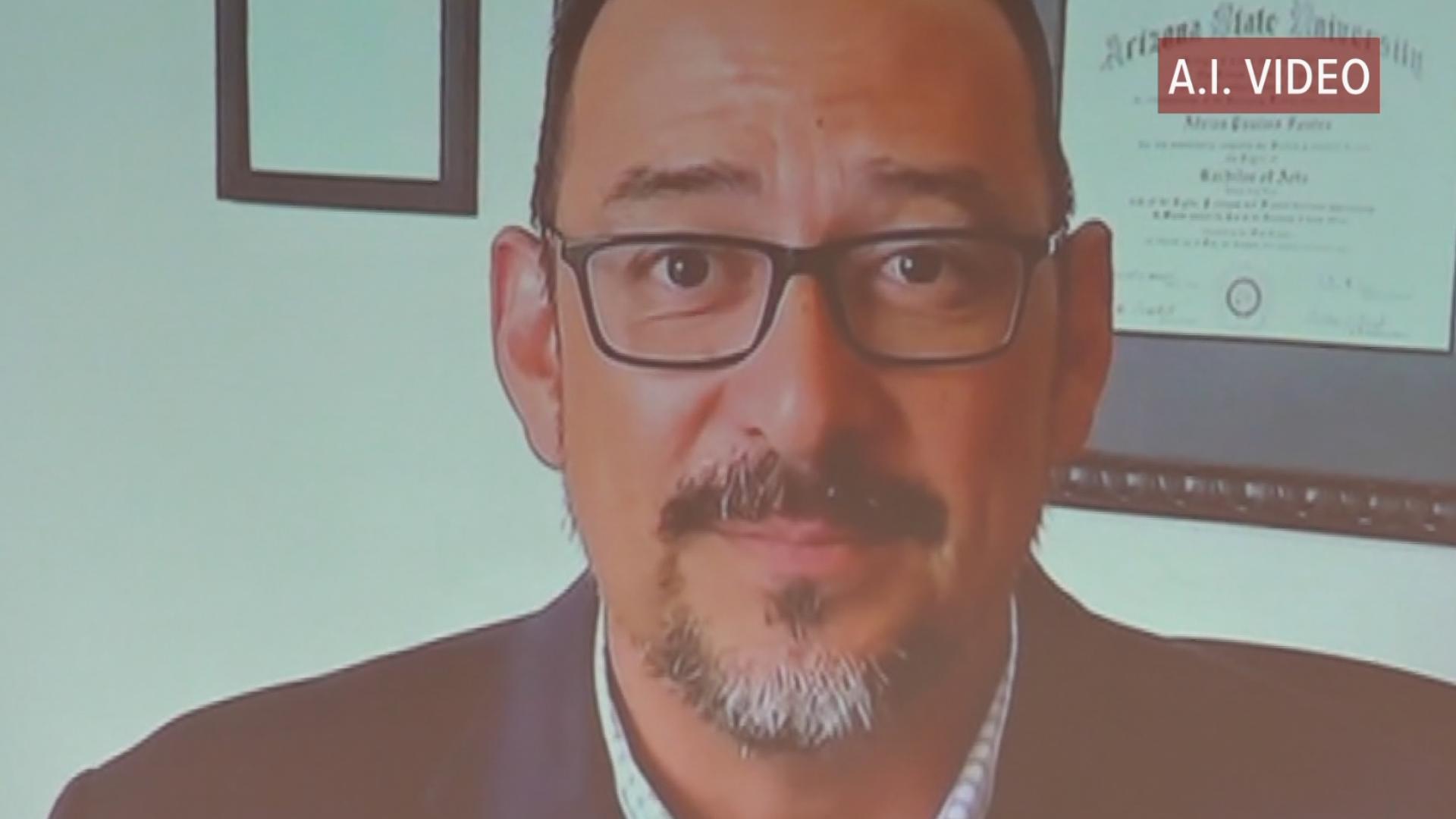PHOENIX — Before his death in April, the widely respected American philosopher and cognitive scientist Daniel Dennett publicly warned about deepfake videos, or as he labeled them, “counterfeit people.”
Dennett, with his scraggly white beard and raspy voice, had the image of a Biblical prophet (though to be clear, he was an atheist) while he discussed ways governments and businesses will exploit “our most irresistible fears and anxieties.”
“These counterfeit people are the most dangerous artifacts in human history, capable of destroying not just economies but human freedom itself,” Dennett said.
Outlaw “counterfeit people” like counterfeit money
His solution? Criminalize “counterfeit people” like counterfeit money.
“Before it’s too late (it may well be too late already) we must outlaw both the creation of counterfeit people and the ‘passing along’ of counterfeit people. The penalties for either offense should be extremely severe, given that civilization itself is at risk.”
Although Dennett’s proposal may seem extreme, he articulated a problem the U.S. government has yet to address, and election leaders in particular are concerned.
“I have no doubt this kind of technology will be used in our state this year to disrupt our elections in some way,” said Arizona Secretary of State Adrian Fontes, speaking at a forum for journalists and elections officials earlier this year.
Government can’t keep up
Stunningly realistic computer-generated videos increasingly appear in online feeds, showing either fictitious or actual known human beings speaking and acting just like the real thing. AI-generated audio is also considered a deepfake.
There is no federal law that bans deep fakes. Various bills meant to establish ground rules for AI have mostly stalled in recent years.
“The problem that we face with all technologies is that they are created, put out into society, and people start adopting and using them long before we can figure out how to regulate them,” said Sarah Florini of ASU’s Lincoln Center for Applied Ethics.
Trump, Taylor Swift, and the 'satire' loophole
Recent incidents involving deepfakes highlight how they are increasingly blurring lines between satire and deception.
In January, a fake Joe Biden robocall in New Hampshire told Democrats not to vote in the primaries.
In June, a video of an A.I. generated “car dealer” in Paris spread worldwide, falsely claiming the dealership sold a Bugatti to the wife of Ukraine’s president, suggesting financial corruption. Disinformation experts told CNN the video was likely the product of a Russian disinformation campaign.
Last month Elon Musk tweeted to more than a hundred million of his followers a manipulated version of Kamala Harris’ voice that Musk later said was meant as satire. His original tweet contained no notification it was a fake.
In May, scammers used a deepfake video of former President Donald Trump and celebrities to solicit donations.
On Sunday Trump posted deepfake videos of pop superstar Taylor Swift and “Swifties” endorsing Trump. Trump downplayed the seriousness of his decision to share the images and said he couldn’t be sued because he didn’t create the content.
Florini said plaintiffs and prosecutors can use existing laws regarding truth-in-advertising and fraud to address some concerns posed by AI. She does not adhere to Dennett’s philosophy to ban deepfakes altogether.
“I think the idea that they are the most dangerous artifacts in human history is a bit hyperbolic and probably there for effect,” Florini said. “I don't know if they're (deepfakes) going to destroy human freedom.”
If we don’t ban counterfeit people, what do we do?
Absent new laws, the Biden Administration issued an executive order banning deepfake robocalls and convinced the nation’s largest tech companies to enter voluntary commitments involving civil responsibility.
Florini says crafting legislation requires Congress to balance freedom of expression with consumer protections. She believes comparing deepfakes to “counterfeit cash” would be problematic.
“When you start to get down into the nuance, then you start to have to deal with the fact that there are a lot of iterations, versions of quote unquote, fake people,” she said, pointing to the media industry and rights for artistic expression.
One proposal in Congress would require watermarks on videos that are manipulated. Microsoft Vice Chair and President Brad Smith recently issued a public plea, saying, “One of the most important things the U.S. can do is pass a comprehensive deepfake fraud statute to prevent cybercriminals from using this technology to steal from everyday Americans.”
Before his passing, Dennett predicted deepfakes would cause society to be less trustful and more paranoid. He emphasized that it’s not the technology that is the problem, but the bad actors who will be allowed to use it with impunity.
“It’s not that AGI (Artificially General Intelligence) is going to enslave us. We’re going to allow much, much, much stupider systems beguile us,” Dennett said.
Up to Speed
Catch up on the latest news and stories on the 12News YouTube channel. Subscribe today.

